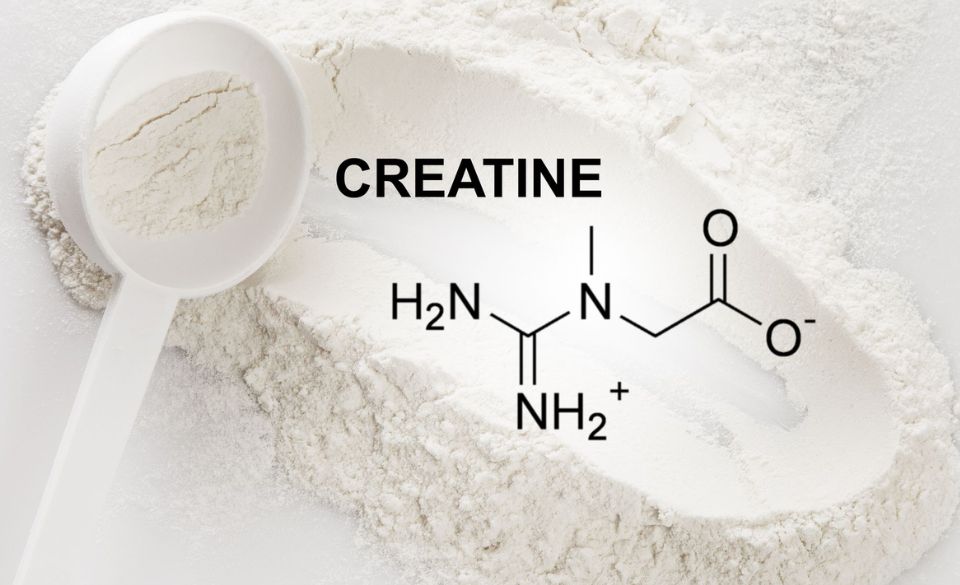
Do You Need To Cycle Creatine? A Complete Guide
Page Contents
- What Exactly Is Creatine?
- Is Creatine Safe to Use?
- Does Creatine Contribute to Muscle Gain?
- Why Do People Use Creatine Supplements?
- Are Creatine Supplements Recommended for Athletes?
- What Is the Most Prevalent Form of Creatine Supplement?
- Do I Need To Cycle Creatine?
- Final Words – Do You Need To Cycle Creatine?
Are you looking to boost your athletic performance, gain an edge in the gym, or maximize your workouts’ potential? If so, then welcome to the world of creatine – a game-changer in the realm of fitness and sports nutrition. Creatine is not just a buzzword; it’s a naturally occurring compound that holds the key to unlocking your body’s true potential, enhancing muscle function, and fueling your physical prowess.
In this comprehensive guide, we’re diving deep into the realm of creatine, exploring its many facets, from its fundamental role in energy production to its impact on muscle growth and performance. Whether you’re an elite athlete, a weekend warrior, or just someone looking to supercharge your fitness journey, understanding the science and practical applications of creatine can make a world of difference.
So, whether you’re a seasoned pro or new to the fitness game, let’s embark on this journey to discover how creatine can revolutionize your workouts, boost your strength, and help you achieve your fitness goals.
What Exactly Is Creatine?
Creatine serves as a naturally occurring energy source that aids in the contraction of skeletal muscles, providing a sustained energy supply to keep your muscles functioning, especially during physical activity.
Approximately half of your body’s creatine supply (equivalent to 1 to 2 grams per day, akin to 1 to 2 jellybeans in size) is derived from your diet, with protein-rich foods, including red meat (such as pork, veal, and beef), seafood (fish and shellfish), and animal milk (such as cow, goat, and sheep milk), being significant sources. The other half is naturally produced by your liver, kidneys, and pancreas, with around 95% of this creatine being delivered to your skeletal muscles for use during physical exertion, while the remaining portion is allocated to your heart, brain, and other bodily tissues.
In addition to dietary sources, creatine supplements are manufactured and available in various forms, including powders, tablets, capsules, liquids, and energy bars. Many individuals opt for creatine supplements when they engage in frequent workouts or don’t obtain sufficient creatine through their diet.
Is Creatine Safe to Use?
Research indicates that creatine supplements are generally safe for most individuals. However, certain conditions, such as pregnancy or breastfeeding, diabetes, kidney disease, liver disease, and bipolar disorder, warrant caution when considering creatine supplementation. In the case of bipolar disorder, creatine might potentially heighten the risk of mania.
To ensure the safety of creatine use, it is advisable to consult with a healthcare provider before incorporating it into your regimen.
Does Creatine Contribute to Muscle Gain?
The impact of creatine on muscle gain varies depending on several factors. Studies demonstrate that regular creatine intake combined with weightlifting and exercise can enhance muscle growth, particularly in individuals aged 18 to 30. However, there is insufficient research to ascertain whether creatine exerts the same effects on muscle development in individuals over the age of 65 or those afflicted with muscle-affecting medical conditions.
Why Do People Use Creatine Supplements?
Many amateur and professional athletes turn to creatine supplements to enhance their exercise routines and facilitate quicker recovery. Creatine provides a surge of rapid energy and increased strength, which can enhance athletic performance without compromising endurance during longer aerobic activities.
Most athletes who opt for creatine supplements participate in power sports such as bodybuilding, football, hockey, and wrestling. Moreover, research suggests that creatine supplements may also have a positive impact on brain function in individuals aged 60 and older, encompassing short-term memory, reasoning abilities, and neuroprotection (safeguarding groups of nerve cells from harm or injury). Ongoing research explores the potential benefits of creatine supplements for individuals with cognitive conditions, including dementia.
Irrespective of one’s physical fitness level, age, or health status, it is advisable to consult a healthcare provider before considering creatine supplementation.
Are Creatine Supplements Recommended for Athletes?
Numerous athletes incorporate creatine supplements into their regimens. Major sports organizations, including the International Olympic Committee (IOC) and the National Collegiate Athletic Association (NCAA), permit the use of creatine supplements among athletes.
Both men and women, as well as individuals assigned male or female at birth (AMAB or AFAB), report experiencing benefits from creatine use. Nonetheless, certain studies suggest that women and people AFAB using creatine supplements may not achieve the same degree of strength and muscle mass gains as their male and AMAB counterparts.
What Is the Most Prevalent Form of Creatine Supplement?
Creatine monohydrate stands as the most common form of creatine supplement. This dietary supplement is renowned for its ability to enhance muscle performance in activities involving brief, high-intensity resistance exercises, such as weightlifting, sprinting, and cycling. Other variants of creatine do not appear to confer the same benefits.
Do I Need To Cycle Creatine?
Creatine, one of the most extensively researched and advantageous supplements for muscle development, offers various performance advantages, irrespective of your current fitness level. Creatine can help enhance your strength in the gym, optimizing your workouts to their fullest potential and enabling you to push for that additional repetition, thereby stimulating muscle growth.
To initiate any creatine regimen, a loading phase is suggested. This loading phase saturates your muscles, augmenting cell volume, and in turn, promoting the growth of lean muscle tissue. During this loading phase, you should consume a substantial amount of creatine for 5-7 days before transitioning to a lower maintenance dose.
Creatine cycling pertains to the pattern of creatine usage, with common cycles involving an initial loading phase, followed by a maintenance phase, and concluding with a hiatus from creatine supplementation. This cycling method not only maximizes the benefits of enhanced power, strength, and muscle development but also avoids overreliance on supplementation, allowing your body time to reset and naturally synthesize its creatine.
Typical creatine cycles include:
Loading Phase: 5-7 days of 20-25g per day, divided into 5g doses throughout the day.
Maintenance Phase: 4-6 weeks of 5g per day.
Rest Period: 2-4 weeks without creatine (other supplements can be used during this time) before commencing the next loading phase and cycle.
For optimal creatine absorption within the muscles, it is recommended to consume creatine alongside protein and carbohydrates, either as part of a pre- or post-workout shake.
Individual tolerance to creatine may vary. Some individuals may experience stomach discomfort with larger doses of 20g per day, while others can tolerate up to 30g per day without adverse effects. Water retention is a common occurrence with creatine supplementation, so it is advisable to increase daily water intake to 2-3 liters a day to mitigate excessive fluid retention. If you encounter stomach discomfort while using creatine, discontinue all supplementation immediately and consult a healthcare professional.
Final Words – Do You Need To Cycle Creatine?
creatine is a fascinating and versatile compound that has the potential to transform your athletic performance and muscle growth. It acts as a natural energy source for your muscles, allowing you to push your limits during physical activity.
Whether you choose to obtain creatine from dietary sources or through supplements, it’s important to consider your individual health and consult with a healthcare provider, especially if you have certain medical conditions like diabetes, kidney disease, or bipolar disorder. Safety should always come first.
While creatine has shown remarkable effects on muscle growth, particularly in younger individuals engaged in weightlifting and exercise, further research is needed to explore its benefits for older adults and those with muscle-affecting medical conditions.
For athletes, whether you’re a seasoned pro or just starting, creatine supplementation is a common practice. Major sports organizations permit its use, and both men and women can benefit from it, although some studies suggest potential differences in strength and muscle mass gains.
Creatine monohydrate is the most prevalent and well-studied form of this supplement, known for its effectiveness in enhancing performance during high-intensity resistance exercises. It’s an invaluable tool in your fitness arsenal.
Remember, when starting a creatine regimen, it’s advisable to follow a loading phase for the first 5-7 days to saturate your muscles, followed by a maintenance phase. Cycling your creatine intake ensures your body doesn’t become overly reliant on supplementation, giving it time to naturally synthesize creatine.
To optimize creatine absorption, consider taking it alongside protein and carbohydrates, either before or after your workouts. And, keep in mind that individual tolerance to creatine may vary, so it’s essential to adjust the dosage according to your needs while staying hydrated to minimize water retention.
In the world of fitness and sports nutrition, creatine is a powerful ally that can help you achieve your performance and muscle growth goals.


